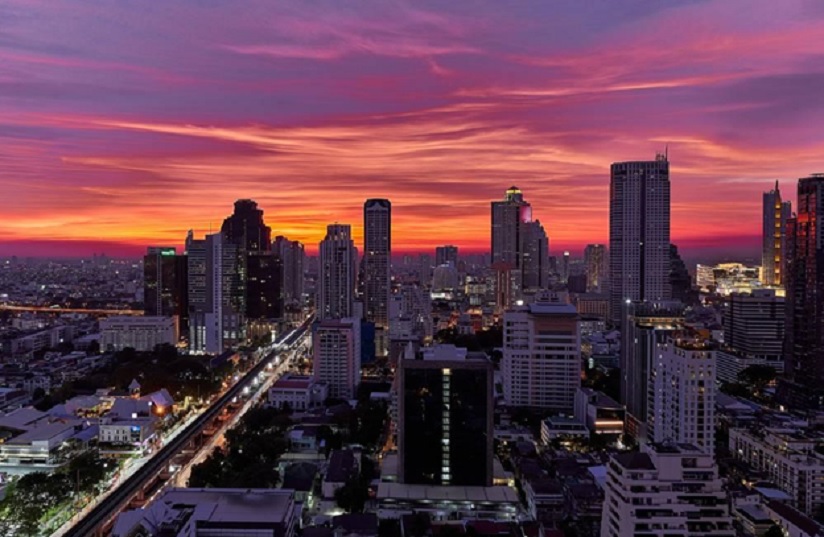Travel/Tourism
Philippines Casino Resorts: A Model for Thailand’s Gambling Industry?

A big game-changer and a big investor, Megaworld Corporation is spending P20 billion in San Lazaro Tourism and Business Park in Manila in the Philippines. They are building a modern casino resort which will be the next significant development in the gaming industry.
The government is attempting to boost foreign investment and tourism, which are essential for economic growth. It is expected that the proposed casino resort will create a large number of jobs and increase foreign travel to the Philippines. Moreover, it will help place the nation as a prominent player in the global gambling market, competing with gambling destinations like Macau and Las Vegas. But what about the Thai casino industry? How does the Philippines’ casino investment plan compare to Thailand’s own casino industry?
Thailand’s Stand on Gambling
As gambling is now largely prohibited in Thailand, there aren’t any licensed casinos operating on the market. The only exception is the Thailand state lottery and horse race betting, which are authorized by the government. Nevertheless, with the growing popularity of online gambling, players can still access Thai online casinos. The government is putting a lot of effort into advocating the development of legal casinos that may benefit the nation’s economy. However, a large proportion of the public is still worried about the possible social issues that could result from increased gaming.
Supporters argue that having legal casinos would bring significant economic benefits to the country, increase revenue and create job opportunities. It would also boost the existing tourism economy by offering visitors another sort of entertainment.
Those objecting to legalizing gambling argue that it presents a social risk as gambling addiction might cause financial and psychological issues for individuals and their families. Some people are also concerned that casinos might turn into a hotspot for criminal operations like money laundering and organized crime.
Casino Laws and Beliefs
The Playing Cards Act of 1943 and the Gambling Act of 1935 forbid casinos and gambling in Thailand. These regulations make it illegal to participate in or promote gambling activities and explicitly prohibit most games that include wagering. Another reason why casinos are outlawed in Thailand is the nation’s cultural and religious convictions. The nation’s most widely practiced religion Theravada Buddhism considers gambling as a sin that can cause addiction, loss of faith, and financial disaster.
Gambling Opportunities in Sight
Thailand is trying to use the Philippines’ experience with Integrated Resorts as a way to legalize casinos and other types of gambling in the near future. The initiative could potentially convince the public that a well-planned and controlled casino business can bring large investments, boost tourism and stimulate the economy.
The House of Representatives has already approved a proposal to build five resorts with integrated casinos in the next few years. They require additional research on the potential revenue for the country in order to make a final decision, but things are definitely moving in that direction.
The proposal states that 5% of the resort area will be reserved for an integrated casino, leaving a significant amount of space for additional amenities and attractions for tourists. These could include hotels, restaurants, shopping centers, wellness and fitness centers, theme parks, and other forms of entertainment.
The five most popular tourist cities in Thailand have been chosen as the perfect locations for the proposed developments. Bangkok and other seaside destinations will offer tourists more diverse entertainment that will include the services of a casino floor. Tourists and domestic citizens aged 21 and over will be permitted to enter the casino and participate in games of chance. Local players, however, will be subject to certain limitations and must present evidence of their financial stability along with sufficient funds in order to gamble.
The special House Committee that prepared the proposal also estimates that the integrated casino business will bring approximately $11bn of revenue if the tax is set at 30% for the operator. Other benefits include taxes collected from individual winnings and the additional positive impact they will have on the economy.
The integrated resorts will open new job opportunities that will help the local economy. They will attract more tourists and make them spend more money in the country. Most importantly, they will engage local players and prevent the outflow of funds to other countries.
Final Thought
Despite the numerous challenges posed by legalizing casinos and regulating the gambling market, Thailand is persevering to find a successful solution. It appears that the introduction of resorts with integrated casinos, offering a variety of entertainment, will open the industry up to domestic players and attract more tourists. The anticipated economic benefits and positive impact in the coming years are expected to be substantial.
Travel/Tourism
Middle East Tension: Nigeria Halts Pilgrimages to Israel

By Adedapo Adesanya
The Nigeria Christian Pilgrim Commission (NCPC) has suspended pilgrimages to Israel and all other Middle East nations owing to the escalation of tensions in the Gulf region.
The Executive Secretary of NCPC, Bishop Stephen Adegbite, said during a press briefing in Lagos on Tuesday that every pilgrimage of the commission, as well as of the private pilgrimage operators, has been suspended until security in Israel and all the Middle East returns to normalcy.
Bishop Adegbite also assured that the over 500 pilgrims that made up the last batch of the 2025 pilgrimage have safely landed in Nigeria on Tuesday.
Recall that the United States and Israel have carried out waves of airstrikes across Iran, and Iran has retaliated with drone and missile attacks against US-aligned countries across the Middle East.
The campaign has killed several of Iran’s top military and political leaders, including the supreme leader, Ayatollah Ali Khamenei.
Iran retaliated the death of its supreme leader by targeting US military assets in several Gulf countries, with missiles reportedly striking sites in Bahrain, Qatar, Kuwait, and the United Arab Emirates (UAE).
The US military has acknowledged the deaths of six service members, while the Iranian Red Crescent Society said more than 500 people have been killed in the country.
This development has made the region unstable and puts Nigerians making pilgrimage to the Middle East at risk.
Travel/Tourism
Festive Travel Surge: FCCPC Flags Fare Manipulation by Airlines

By Adedapo Adesanya
The Federal Competition and Consumer Protection Commission (FCCPC) says its investigation uncovered how airlines manipulated flight fares and fixed prices arbitrarily during the last Christmas and New Year’s holidays.
The findings, contained in an interim report released on Thursday by the commission’s department of surveillance and investigations, compared domestic airline pricing from the December 2025 festive period with post-peak January 2026 fare levels.
The FCCPC, in a statement signed by its director of corporate affairs, Mr Ondaje Ijagwu, said it established cases of price fixing by local airlines, documented abuse during the festive season, and would soon begin a probe of foreign airlines, following its ongoing country-wide investigation, which was announced earlier in January.
“A review undertaken by the Federal Competition and Consumer Protection Commission (FCCPC) has uncovered patterns of price manipulation perpetrated by some local airlines during the last festive season. The forensic exercise benefitted from data collated by the commission from airlines operating local routes in the country,” the report said.
The report compares domestic airline pricing from the December 2025 festive period with post-peak January 2026 fare levels.
The FCCPC’s preliminary analysis indicated that fares recorded during the December peak period were materially higher than those observed in the post-peak period across several routes despite relative stability in critical operating variables such as fuel price, government taxes and foreign exchange.
“The differences observed in fares therefore appear to reflect airlines’ arbitrary pricing decisions, including yield management and capacity allocation, rather than any variation in regulatory fees,” the report said.
It also noted that route-level analysis showed that higher fares coincided with periods of reduced seat availability during predictable seasonal demand peaks. On some high-density routes, peak fares were clustered within relatively narrow ranges across several operators.
It noted that on certain corridors, such as Abuja-Port Harcourt, peak fares were several times higher than corresponding post-peak levels. “On selected routes, the difference in the price of a single ticket reached approximately N405,000. Median fares across the sampled routes also rose markedly during the festive window when compared with post-peak benchmarks,” it said.
The report identified the relevance of Sections 59, 72, 107, 108, 124 and 127 of the Federal Competition and Consumer Protection Act 2018, which address the prohibition of agreements in restraint of competition, the prohibition of abuse of a dominant position, the offence of price-fixing, conspiracy to commit offences under the Act, the right to fair dealings, and the prohibition of unfair, unreasonable or unjust contract terms.
The FCCPC, however, recognised that seasonal demand pressures, scheduling constraints and fleet utilisation might also affect pricing during the peak travel period. It added that these actors remain under consideration as part of the commission’s ongoing review.
Commenting on the release of the interim report, the executive vice chairman and chief executive officer of the FCCPC, Tunji Bello, said the review was part of the commission’s statutory responsibility to promote competitive markets and safeguard consumers.
“This assessment is intended to provide clarity on pricing behaviour during predictable peak travel periods. The Commission’s role is not to disrupt legitimate commercial activity, but to ensure that market outcomes remain consistent with competition and consumer protection principles under the law,” Mr Bello said.
He noted that the commission was conducting further structural and route-level analysis before reaching any conclusions.
“It is important to emphasise that this is an interim report. Our next action will be dictated by the full facts established at the end of the review exercise. Then, the Commission will decide whether any regulatory guidance, engagement or enforcement steps are necessary, strictly in accordance with the law,” he said.
Bello further announced that foreign airlines would come under investigation by the FCCPC once the ongoing review of local airlines was concluded.
He noted that the probe of the foreign airlines would be in view of widespread complaints of exploitative fares they allegedly charge Nigerians on certain routes compared to fares in neighbouring countries of equal distance.
Travel/Tourism
FAAN Traces Source of Lagos Airport Fire to Server Room

By Modupe Gbadeyanka
The Federal Airports Authority of Nigeria (FAAN) has disclosed that the fire incident at Terminal 1 of the Murtala Muhammed International Airport (MMIA), Lagos, on Monday originated from the server room on the first floor of Terminal 1.
In a statement in the wee hours of Tuesday, the agency confirmed that six casualties were recorded, involving three males and three females.
“A total of six casualties, comprising three males and three females, were recorded, all of whom are in stable condition. One affected individual has been transferred to the FAAN Headquarters Hospital for further medical evaluation and remains stable,” a part of the statement said.
FAAN noted that emergency response operations remain active, with coordinated firefighting, rescue, and safety teams continuing containment and recovery efforts.
A crane was successfully deployed to support rescue operations at the Control Tower, and all 14 persons initially trapped have been safely rescued and fully evacuated from the facility, it added.
The organisation disclosed that as an additional safety precaution, the sixth floor of the affected facility has been completely evacuated to support ongoing emergency operations and risk mitigation, adding that the fire within the departure hall is now largely under control, while responders continue close monitoring to prevent any spread to adjoining sections of the terminal.
“In line with established safety protocols, the airspace remains temporarily closed,” it stated, confirming that all emergency procedures were promptly activated and continue to collaborate with relevant emergency and support agencies to safeguard lives, infrastructure, and operational integrity.
Also, the statement revealed that the Nigerian Airspace Management Agency (NAMA) is actively working to establish a temporary Control Tower to enable the safe and timely restoration of airport operations as soon as practicable.
-

 Feature/OPED6 years ago
Feature/OPED6 years agoDavos was Different this year
-
Travel/Tourism10 years ago
Lagos Seals Western Lodge Hotel In Ikorodu
-

 Showbiz3 years ago
Showbiz3 years agoEstranged Lover Releases Videos of Empress Njamah Bathing
-

 Banking8 years ago
Banking8 years agoSort Codes of GTBank Branches in Nigeria
-

 Economy3 years ago
Economy3 years agoSubsidy Removal: CNG at N130 Per Litre Cheaper Than Petrol—IPMAN
-

 Banking3 years ago
Banking3 years agoSort Codes of UBA Branches in Nigeria
-

 Banking3 years ago
Banking3 years agoFirst Bank Announces Planned Downtime
-

 Sports3 years ago
Sports3 years agoHighest Paid Nigerian Footballer – How Much Do Nigerian Footballers Earn









